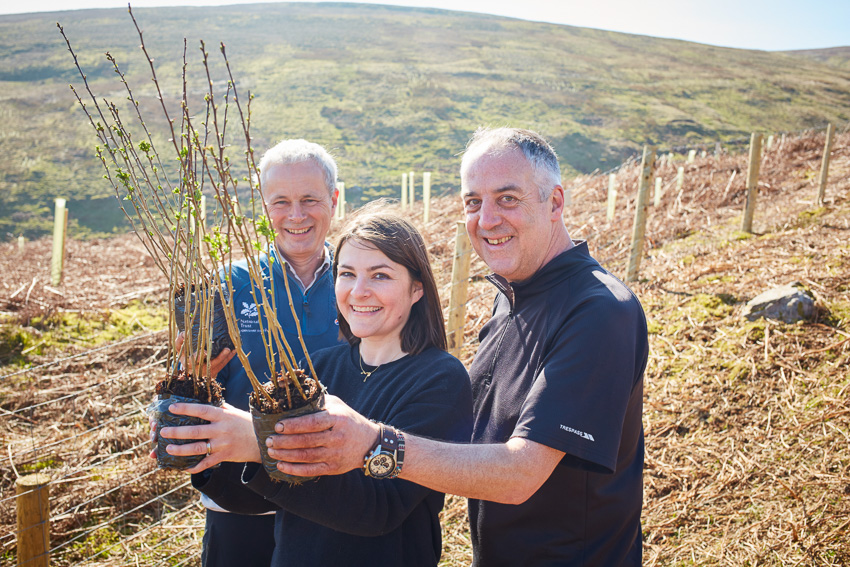Restoring natural habitats & reducing flood risk with Trees for Life

Bettys is helping to plant 20,000 trees with the National Trust in the Yorkshire Dales as part of a project to restore a more natural habitat to the area and play a part in flood mitigation.
Thanks to our long-running Trees for Life campaign, and with the help of its customers, we're supporting the National Trust’s landscape restoration work in Langstrothdale Commons and nearby areas in upper Wharfedale.
The trees are part of a significant project to create 65 hectares of native scrub and woodland, restore peat bogs and build wooden debris dams in order to create a more natural mosaic of habitats and help slow the flow of rainfall into the river system, supporting flood mitigation in the immediate area and down river.
Sam Gibson, Bettys Ethical Projects Officer, said: “We take huge pride in the Yorkshire landscape that is home to our Café Tea Rooms and we’re thrilled to be working with the National Trust to plant trees in the Dales. Our family business has long-valued the benefits of tree planting, and after last year’s flooding in parts of Yorkshire, it’s great to be supporting a project which improves biodiversity and will hopefully play a role in mitigating flooding in the future.”
The planting will focus on British native species including willow and alder mainly in the wetter areas and holly, blackthorn, hawthorn and juniper. The habitat will be more able to withstand a changing climate and these areas will help to slow water flow into the river system, while trees’ roots and longer vegetation beneath the trees will also help to prevent landslides and erosion.
Martin Davies, General Manager for the National Trust in the Yorkshire Dales, said “We’re incredibly grateful to Bettys for their generous support helping us to plant trees in Upper Wharfedale. We rely on the support of donations to help us carry out our work to manage this important landscape. Including the 20,000 trees from Bettys, this means over the last 18 months we’ll have planted nearly 100k trees across Malham and Wharfedale. Combining this with changes to encourage lighter livestock grazing systems, and works to restore the blanket bogs on the hill tops, this can only be of significant benefit to the natural environment.”
Keep up to date with our Trees for Life projects on the blog


